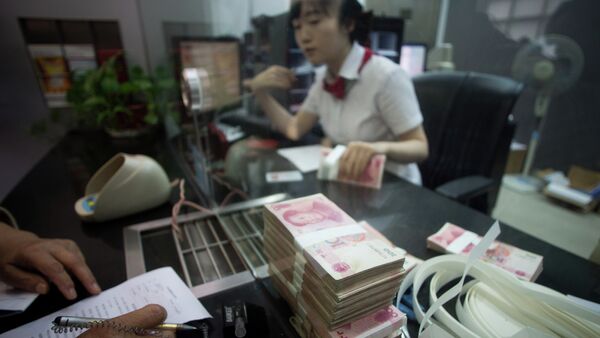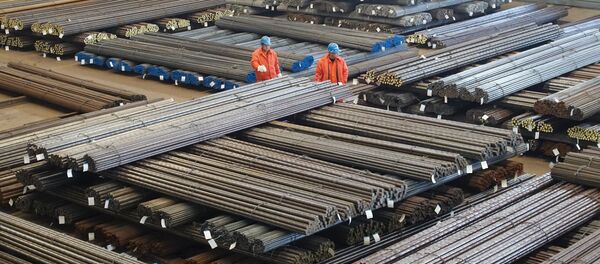Kristian Rouz — Mainland China's debt-to-GDP ratio has surpassed a stunning 300 percent due to the massive debt-driven recovery following the global economic crisis of 2008-2009. Provincial governments and private enterprises have amassed significant debt, all of which is ultimately guaranteed by the central government in Beijing.
Against this backdrop, the Chinese government seeks to gradually reform its economy, enforce greater fiscal discipline and crackdown on shadow banking, as well as malicious lending practices. Moreover, the government is pursuing a realignment of its economy toward a growth model reliant on domestic consumption rather than its currently overwhelming exposure to international markets.
READ MORE: US Senate Proposes Tougher Foreign Investment Review Amid Trump's Visit to China
In mid-November, Beijing released its guidelines to prohibit financial institutions — banks and other lenders — from guaranteeing investors against losses, as well as enhancing its surveillance over its $9-trillion asset management industry.
These new rules are poised to de-monopolize mainland China's private investment, which has been dominated by large corporations and institutionalized investors. The new rules are said to be favoring mutual funds, which are slightly more transparent and less corruption-prone.
The reforms are seen as "radical," as the government is adamant about curbing risks to its domestic investment. A decentralization in its overall private investment is poised to make the mainland's financial markets more open and competitive, whilst Beijing's encouragement of foreign investment is expected to bring new capital from overseas.
"The guidelines classify asset management products by their fundraising method — public or private — and their investment scope, and will subject them to uniform requirements so as to reduce regulatory arbitrage," David Yin, of international rating agency Moody's in Hong Kong, said.
This is no longer the case, observers point out, as the government has figured out that open markets and unified rules of surveillance are more efficient in battling corruption than battling the ills of the inherently flawed system by blatantly tightening the screws.
"The guidelines will close many regulatory loopholes while leaving room for the orderly and sustainable growth of China's asset management business," Lan Shen, of a Shanghai branch of Standard Chartered Bank, said.
Analysts also expect the new rule will benefit bond/fixed-income funds and money market funds the most. The new regulations require the asset minimum for qualified investors to be increased to $756,000 from $454,000, whilst new leverage limits are set at a 140 percent debt ratio (total assets divided by net assets) for retail investor products and 200 percent for qualified private investors.
These measures are poised to stave off debt-driven investment and bring real money to the economy. Investors will have to raise money in the open market, and that's where small individual investors come in; such as truck drivers, for example, seeking to put their money into profitable assets in order to boost their pension/retirement savings.
"The new rules are likely to contain financial risks, curb excessive credit growth and improve the effectiveness of monetary policy," Standard Chartered's Shen says.
Finally, international companies will be able to control their business in mainland China, as an increasing amount of overseas players will not have to worry about compromising their intellectual property by partnering with local enterprises. This has been a major issue for the US, and President Trump has been pushing for mainland China to change its ways in order to avoid an economic standoff. China has decided to give in — for now.
The mainland is now also set to become the world's second-largest investment/asset management market by 2030, next to the US, or even surpass the leader in case "Trumponomics" stagnates due to leftist obstructions and the rising influence of regressive Democrats in D.C.




